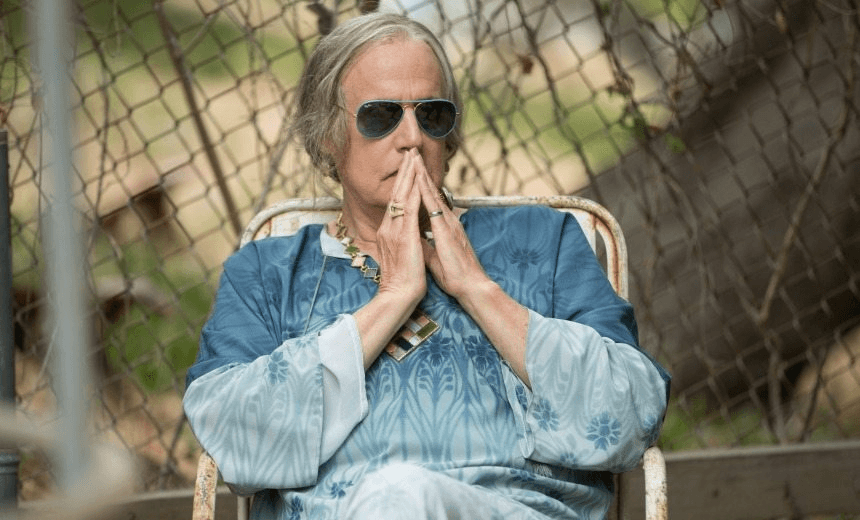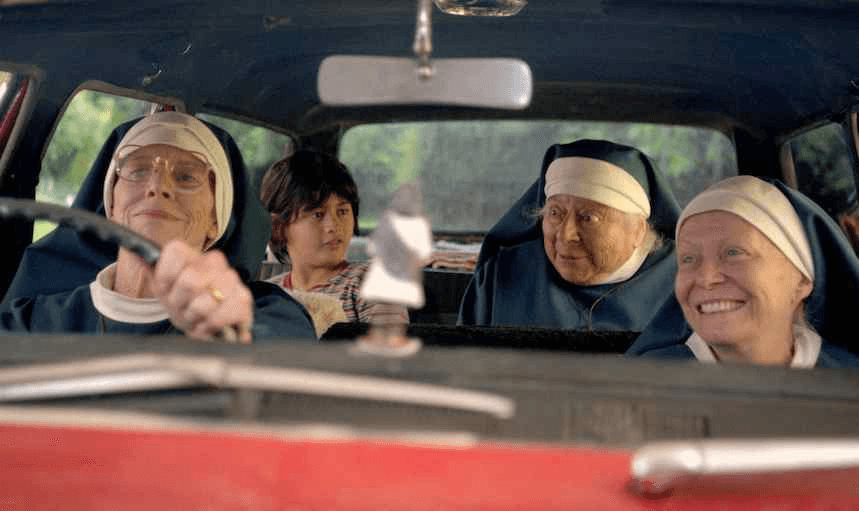Red-faced Transparent fans fess up with their embarrassingly delayed reactions to the double entendre of the show’s title.
Raking in yet another pile of Emmy nominations last week, it’s no secret that the Amazon original series Transparent is one of the boldest and best television shows in recent years. Yes, it tackles issues of gender and sexuality in a way seldom seen. Yes, it has a very good soundtrack and knows the music industry inside out. Yes, it might be looked back on one day as the nail in the coffin of dusty broadcast television. Big whoop.
The most important thing about Transparent is clearly that it has a really good title.
Let me spell it out for you like I wish someone had spelled it out for me so many moons ago. The show is called Transparent. You know, like clear, unequivocal, obvious. But it’s also about a TRANS parent, being the main character Maura who comes out as trans in the very first episode of the show. Seem obvious? Here’s me when I realised:
Many cottoned on to the onion-style layers of meaning straight away, laughing either audibly in my face or digitally over email when I floated the idea for this piece. But I knew I was not alone. After a while, the guilty Denvers began rolling into my inbox, all holding tarnished pennies that had dropped way too late in the Transparent game.
David Farrier, ex TV3 wacko and Tickled director
Oh Jesus, yeah. I watched all of season one, loved it, felt good about it. I was lying in bed and had actually gone to sleep listening to an old /Film podcast, when my brain just went TRANS… PARENT
Fucking lightning bolt out of NOWHERE.
It’s so dumb not to realise, but at the same time I took it as a metaphor, you know? We all did. Ugh. It’s like that Flight of the Conchords song where Bret is on the piano singing about a seagull, while Jemaine in his bits interprets what metaphors Bret is illustrating via the seagull. But towards the end of the song he realises Bret is just singing a song from the very literal perspective of a seagull.
That is how I felt as I had my Transparent epiphany.
Leonie Hayden, editor of Mana magazine
[Editor’s note: Leonie shares an office with The Spinoff and only realised when she heard us talking about making this post]
To be clear, I understood the “Trans” part of the word was a play on words, but I neglected to notice the word “parent”. But I suspect that doesn’t save any face at all.
Rachel Donnell, better half of folk band Great North
We sped through two seasons Transparent sometime last year. About six months later, I was at work when it suddenly occurred to me out of nowhere. Transparent. Trans. Parent. Incredible.
I messaged my husband to share this profound revelation with him. He read my ‘revelation’ out to everyone in his office then messaged me back to say they were all laughing at me.
Alex Casey, television editor of The Spinoff
I was sitting in a café on my own, having watched the first few episodes of Transparent the week before, prepping for a completely unrelated interview. Without warning, I suddenly made an involuntary noise akin to this turtle singing a Coldplay song. I realised the truth that had been taunting me in front of my very eyes.
I would also like to add that I had a similar experience recently when watching The Truman Show (= TRUE. MAN. SHOW.). Mind blown. God only knows what else is hiding in plain sight?
Sam Brooks, award-winning playwright
It took me until the end of season two. You are not alone. I assumed the people who made a show as good as Transparent were above the kind of punnery you’d expect of your alcoholic uncle. I assumed wrong.
Hamish Parkinson, comedian and 2015 Billy T award winner
I was waiting for the bus watching some teens slowly walk towards me (teens freak the fuck out of me, so confident). I was thinking about the train scene in Transparent, then moving quickly on how “transparent” and “transport” are kind of similar words and wondering if there was any connection there. Then I realised the real connection. Then called myself an idiot, but I’m pretty sure those teens thought I was talking about them. Ugly weirdos.
Jaquie Brown, writer and TV personality
… It’s a pun?
It’s okay if you were late to the party, click below to watch Transparent exclusively on Lightbox today:



